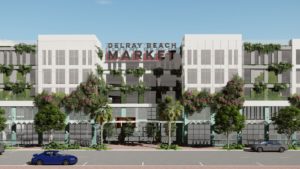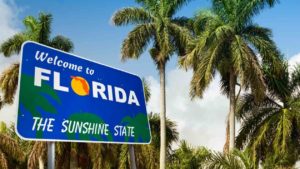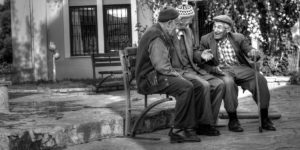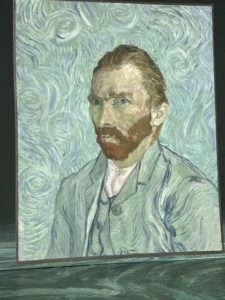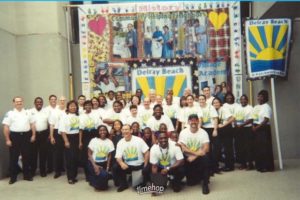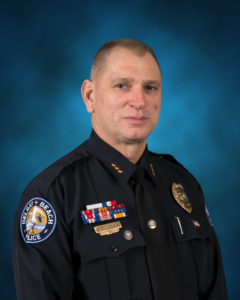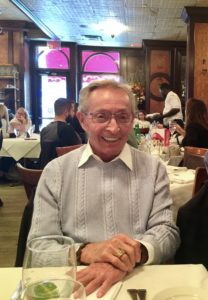
Coco at the Delray Beach Tennis Stadium.
The New York Times ran a fascinating interview with Martina Navratilova recently.
The tennis hall of famer is 64 now, living in Fort Lauderdale and enjoying life.
Martina was a landmark athlete—she changed both the men’s and women’s games, but she’s also an influential cultural figure paving the way for female athletes while being outspoken on a range of topics ranging from LGBTQ rights to animal welfare and a lot in between.
Martina matters.
Like Billie Jean King, Jim Brown, LeBron James and Muhammad Ali, Martina is an athlete who transcended sport to leave a large mark on the world.
Those of us who live in Delray Beach and love tennis have been following Coco Gauff’s burgeoning career and wondering whether she will follow in those large footsteps.
There is no doubt that she is a special talent.
Her results as a teenager have been astonishing. Like other greats, she shows no fear on the court and actually seems to thrive on pressure.
But there’s something else about her that shines through—at least to me anyway. She seems to understand that she has power off the court, and she seems intent on using that power to make a difference.
We saw it when she spoke out at a local Black Lives Matter protest in Delray Beach shortly after the murder of George Floyd. And we saw it last week when she made a generous donation to the Achievement Centers for Children and Families in Delray Beach.
Teaming up with Microsoft, Coco is helping to refresh the main computer lab and build two additional labs at the Achievement Center, a wonderful non-profit that has served this community’s most vulnerable children for over 50 years.
Here’s what the Achievement Center had to say in making the announcement:
“As a professional tennis player and full-time remote student, Coco Gauff saw firsthand the ways that technology could benefit education. While completing classes alongside her rigorous training schedule, she was inspired to provide some of the same tools to students in Delray Beach, where she and her parents grew up.
“This community has given me a lot, so it’s definitely important to give back,” she said
Coco thrilled the kids at the center recently with a virtual appearance and coaching session.
Due to COVID-19 limitations, Coco used Microsoft Teams to surprise the kids. During the event, Coco helped students complete a coding workshop, where they learned about game design. The kids were also able to ask Coco questions including how she became a professional tennis player and what her favorite subject is in school.
“Maybe this can give a kid the opportunity to find their own passions,” Coco said before offering advice to the students. “Make your dreams as big as possible, because you never know how far they will go.”
It’s hard to quantify how important it is for our children to see someone from their community succeed on a worldwide stage. Children need to be encouraged to dream big and they need to be given the tools necessary to achieve those dreams.
The Achievement Centers for Children and Families is a model non-profit that has done just that for half a century and in process the organization has done a lot to break the cycle of poverty.
To see Coco giving back is not a surprise to me.
While I don’t know Coco, I do know her family.
Her grandmother, Yvonne Odom, is one of my heroes, her grandfather Red is a wonderful man who has coached generations of local kids and her parents Candi and Corey are really special and caring people. The Gauff/Odom family are committed to Delray Beach, especially our children.
Coco had a big week professionally reaching the quarterfinals at the French Open, one of the the cathedrals of the sport. She’s still only 17 years old. She has a game as big as any prospect since the Williams sisters, who also have ties to Delray Beach.
But beyond sports, she seems to be a young woman of compassion and substance. She has a platform, and she appears willing and able to use it—like Martina, Billie Jean, Venus and Serena before her.
Coco’s grandmother Yvonne was a groundbreaker in her day too. Fifty years ago this September she became the first Black to attend Seacrest High which later became Atlantic High. Three years before the Civil Rights Act of 1964 and 7 years after Brown vs. Board of Education, Yvonne Lee Odom integrated Delray’s high school. To this day, she remains brave, outspoken and respected. She’s a treasure.
I have a feeling her granddaughter is going to leave a mark far, far beyond tennis. She sure has had some great role models.
